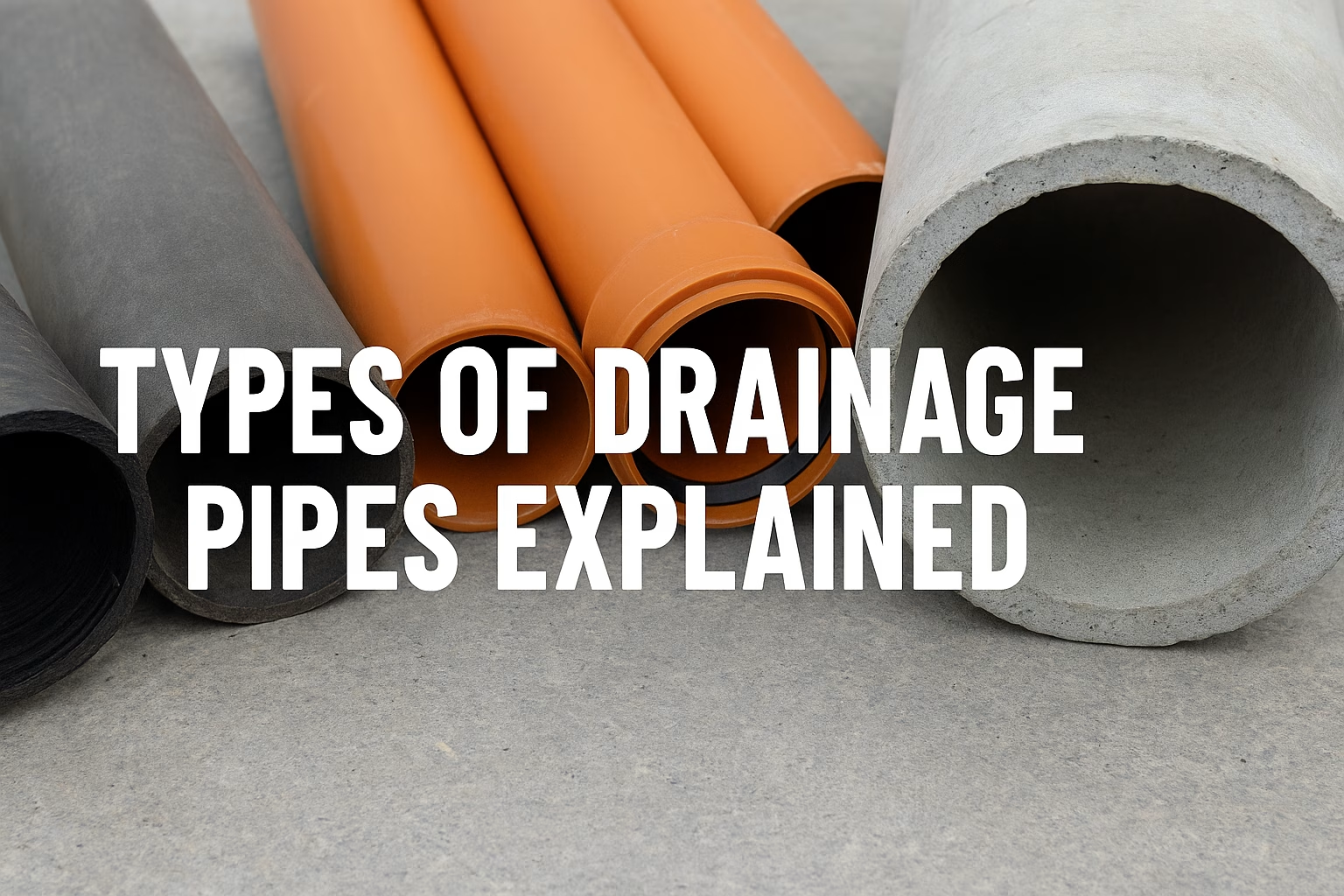What’s Underground Matters: Drainage Pipes in Salisbury
When dealing with blocked drains in Salisbury, the root cause often lies deep underground. At Salisbury Drains24, we’ve worked with nearly every type of pipe in the drainage world—from crumbling pitch fibre to durable modern uPVC.
Whether you’re a homeowner in Laverstock or managing a business in Wilton, understanding the types of drainage pipe materials can help you make better decisions during repairs or upgrades.
1. Pitch Fibre Pipes
Used in: 1950s to 1970s residential builds
Material: Wood cellulose impregnated with coal tar
Advantages:
- Cheap to manufacture at the time
- Lightweight, easy to install
- Smooth internal surface for initial flow
Disadvantages:
- Structurally weak over time
- Easily squashed, blistered, or deformed
- Vulnerable to root intrusion and soft ground
- Often collapses, causing repeated blockages
In Salisbury:
Many suburban homes and post-war builds around Bemerton Heath and Harnham still have pitch fibre drainage. We often find these pipes using CCTV and advise relining or full replacement.
2. Clay Pipes
Used in: Victorian to early 20th century builds
Material: Kiln-fired ceramic clay
Advantages:
- Long-lasting (can exceed 100 years)
- Inert and chemical-resistant
- Resistant to internal wear
Disadvantages:
- Brittle and prone to cracking from ground movement
- Root intrusion common at jointed sections
- Difficult and expensive to repair
- Heavier and less flexible than plastic
In Salisbury:
Historic properties and rural cottages often have old clay pipes. We provide trenchless repair options like CIPP lining to preserve these systems when possible.
3. uPVC Pipes (Unplasticized Polyvinyl Chloride)
Used in: 1980s–present (new builds, upgrades)
Material: Durable plastic polymer
Advantages:
- Lightweight and cost-effective
- Easy to cut, join, and install
- Smooth internal surface reduces blockages
- Resistant to corrosion, roots, and frost
Disadvantages:
- Can warp or deform under high temperatures
- Must be installed correctly with support and proper gradient
- Less soundproof than cast iron indoors
In Salisbury:
Now the standard for most residential and commercial drainage installations. We recommend uPVC for extensions, new builds, and full system upgrades.
4. Cast Iron Pipes
Used in: Pre-1980 commercial, large domestic, or heritage buildings
Material: Cast iron alloy
Advantages:
- Strong and durable (100+ year lifespan)
- Excellent for vertical waste stacks
- Fire-resistant
- Reduces sound transmission
Disadvantages:
- Heavy and labour-intensive to install
- Vulnerable to rusting over time
- Expensive and complex to cut or modify
In Salisbury:
Common in older schools, churches, and some terraced homes. Our team is equipped to service and replace cast iron systems when needed.
5. Concrete Pipes
Used in: Large-scale or public works drainage
Material: Reinforced concrete
Advantages:
- Ideal for high-traffic or heavy load areas
- Structurally robust
- Can be installed in long runs
Disadvantages:
- Heavy machinery required
- Prone to acid corrosion
- Rarely used in domestic settings
In Salisbury:
Typically found beneath roads or in industrial estates like Churchfields. We assist with inspections, cleaning, and repairs for these networks.
Why Knowing Pipe Type Matters
Identifying what’s underground allows us to deliver faster, more reliable repairs. Whether you’re experiencing blocked drains in Salisbury or planning a major renovation, your pipe material determines:
- Repair method (excavation vs. trenchless relining)
- Expected lifespan of the system
- Likelihood of future issues like roots or collapses
Need Help with Old or Problematic Pipes?
At Salisbury Drains24, we provide:
✅ Full CCTV Drain Surveys
✅ Honest Diagnosis Based on Pipe Type
✅ No-Dig Repairs & Relining
✅ Emergency Callouts – No Fees
✅ New Drain Installations with Proper Materials
Whether you live in an old stone cottage or a modern home, our experienced team can guide you toward the right solution.
📞 Call now to book a drainage inspection in Salisbury or nearby villages.

